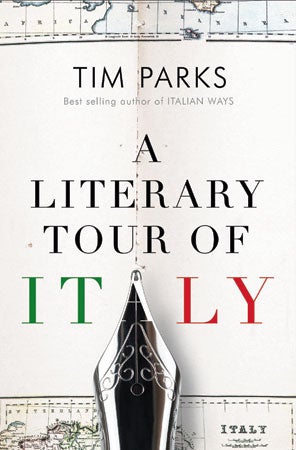Your support helps us to tell the story
From reproductive rights to climate change to Big Tech, The Independent is on the ground when the story is developing. Whether it's investigating the financials of Elon Musk's pro-Trump PAC or producing our latest documentary, 'The A Word', which shines a light on the American women fighting for reproductive rights, we know how important it is to parse out the facts from the messaging.
At such a critical moment in US history, we need reporters on the ground. Your donation allows us to keep sending journalists to speak to both sides of the story.
The Independent is trusted by Americans across the entire political spectrum. And unlike many other quality news outlets, we choose not to lock Americans out of our reporting and analysis with paywalls. We believe quality journalism should be available to everyone, paid for by those who can afford it.
Your support makes all the difference.Italy has been tramped over, century after century, by the keen traveller, the dilettante, the food lover. Tim Parks’s new volume of essays goes where it is inaccessible to the casual tourist, deep into the literature, in 23 essays, mostly on writers from Dante to the 21st century, as well as a few diversions into art. Those hoping for a gentle literary stroll may be disappointed: collected, the essays describe how, generation by generation, the Italian identity has been built.
Parks’s answer seems to be, in various guises, cruelty. He starts, as any writer on Italian literature must, with Dante, in which cruelty is meted out in abundance, on sinners, for sodomy, usury, hypocrisy. Then he stops to consider various translations of one particular line that includes the word pietà, which emerges in English as either piety or pity. Submit to the Divine order of Heaven or Hell, or feel sympathy with the damned? (Parks observes in an aside that the modern world would have banned Hell for being, well, just too cruel.)
If Dante’s conflict still resonates, so too does the one laid out by Niccolò Machiavelli in The Prince: that there is no space for ethics in politics. This slim book, written at a time when Machiavelli had been relieved of his position as a diplomat to the state of Florence, still gives a thrill in its naked ambition and callousness in pursuit of power. Parks grants Machiavelli a get-out: that he was a product of the circumstances of his age, skillfully explained within the essay, and it was a love of one’s homeland (then vying for power with other Italian states) that produced a manual for survival on earth.
God tortures, leaders torture, and then by the 19th century, it is the author who is the torturer. Giovanni Verga, a well-born Sicilian who goes on to write I Malavoglia, one of the Italian classics, places a young peasant woman into a short story, and inflicts on her the pain of dying mother, lover, and finally her own baby. An industrialising Italy has united under Garibaldi, the future looms bright, and yet Verga uses his pen to show how beneath all this, poverty still makes people playthings of circumstance.
In Giorgio Bassani’s The Garden of the Finzi-Continis, the cruelty is time itself. The narrator opens announcing that all of this wealthy Jewish family in pre-war Italy will be dead within years.
The journey from the battles with God, through lay comedies and realism to the present day, is a familiar development in Western literature, and Parks is not attempting an all-encompassing thesis on Italian writing. The essays can be read singly, and there is a pleasure in reopening a conversation with a critic about a book that has long rested on a bookshelf.
When read together, seven centuries side by side, one notices how far civilisation has come in recognising cruelty (witness centuries of politicians disavowing Machiavelli), how cruelty persists, and how literature would be all the poorer without it.

Join our commenting forum
Join thought-provoking conversations, follow other Independent readers and see their replies
Comments